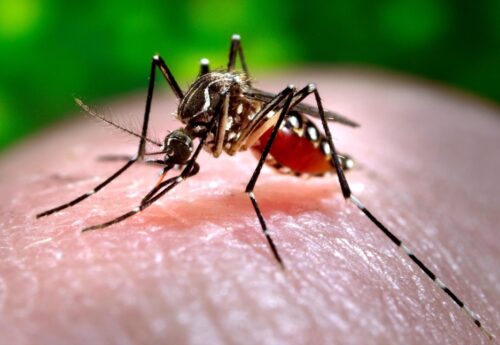Image courtesy of Flickr.
Mosquitoes are perhaps most well-known for causing 725,000 human deaths annually and being extreme nuisances. The blood-suckers appear and are attracted to unique human odors. They then pierce human blood vessels and feed.
The solution seems simple: to find a way to disable the mosquitoes’ sense of smell. However, according to a recent Rockefeller and Boston University study on the mosquito olfactory system, it may not be so straightforward. When researchers deleted chemoreceptors—channels on the mosquitoes’ cells stimulated by human odors—from the mosquito genome, they found that the mosquitoes were still attracted to humans.
Typically, an animal’s olfactory neurons allow it to smell and express one type of chemoreceptor that detects one odor. In the mosquitoes’ case, researchers found that the antenna receptors detecting the human odor 1-octen-3-ol, a chemical in breath and sweat, are also stimulated by amines found on human skin and sweat. The expression of multiple chemoreceptor genes in olfactory neurons provides them with a fail-safe for finding human blood, even when their human-smelling sensors are blocked.
For this reason, simply removing or blocking olfactory receptors from the mosquito genome will do little to prevent them from detecting humans. Still, this finding may be a step toward finally breaking free from the age-old relationship between humans and mosquitoes.

